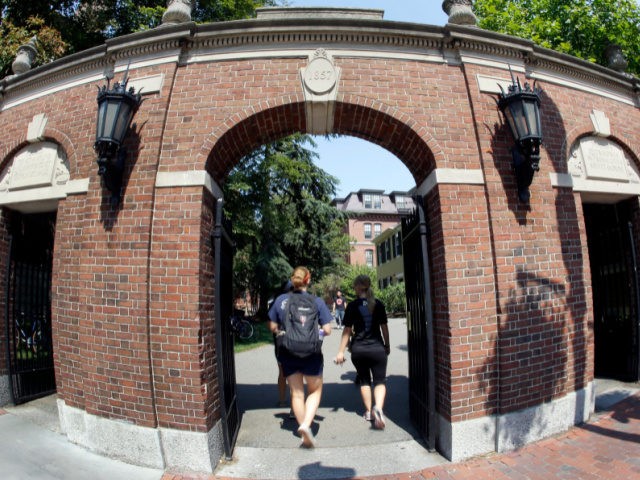An internal investigation into the history of slavery associated with Harvard University reported Tuesday that several people linked to the institution had owned a total of 70 slaves, and that Harvard benefited from money donated by slave owners.
The report acknowledged Harvard’s prominent role in the abolitionist movement. However, it downplayed that contribution, devoting just one sentence to the hundreds of Harvard students who fought and died for the Union cause in the Civil War.
Harvard was founded in 1636 in Cambridge, Massachusetts, and is the oldest university in the United States. At that time, slavery was legal throughout the British colonies, and it was not abolished in Massachusetts until 1783, after the Revolution.
The investigation began under then-Harvard president Drew Gilpin Faust in 2016, at the start of the Black Lives Matter movement. She acknowledged that four slaves known as Bilhah, Venus, Titus, and Juba had worked on Harvard’s grounds.
Weeks before, Harvard changed the title of the administrators of upperclass dormitories from “house masters” to “resident deans,” ostensibly because the word “master” triggered associations with slavery. (Harvard still awards master’s degrees.) The law school also changed its shield, which had evoked the family crest of a donor family that had once owned slaves.
The report does not quite support the claim by Faust, a Civil War historian, that Harvard was “directly complicit in America’s system of racial bondage.” Instead, it finds that a handful of slaves — 70, over a period of nearly 150 years — worked for university presidents and their families, and that some university officials employed slaves whose work took place on campus and for the benefit of students and faculty. It does not, however, establish that Harvard itself owned slaves directly.
The report adds: “Moreover, throughout this period and well into the 19th century, the University and its donors benefited from extensive financial ties to slavery.” It acknowledges that “a small but vocal group of Harvard affiliates pressed the abolitionist cause.” It devotes one sentence to the Civil War dead: “Many Harvard men fought and died for the Union, and their sacrifices are commemorated on campus in Memorial Hall; some also fought and died for the Confederacy.”
It does not acknowledge that there were more Harvard dead (117) in the Union cause than slaves owned (70) at Harvard.
The report conflates slavery with the study of race and eugenics in the late nineteenth and early twentieth centuries, and the persistence of racial discrimination into the 20th century, including discrimination against Jewish applicants to the school.
The report boasts that Harvard today “champions race-conscious admissions policies in our courts of law.” It is being sued over policies that exclude Asian students to admit more black and Latino students. The case is at the U.S. Supreme Court.
In response to the report, Harvard pledged to spend $100 million on the report’s recommendations, such as the creation of a Legacy of Slavery Fund, and urging students and faculty to “engage with the history of slavery and its legacies at Harvard.”
Joel B. Pollak is Senior Editor-at-Large at Breitbart News and the host of Breitbart News Sunday on Sirius XM Patriot on Sunday evenings from 7 p.m. to 10 p.m. ET (4 p.m. to 7 p.m. PT). He is the author of the recent e-book, Neither Free nor Fair: The 2020 U.S. Presidential Election. His recent book, RED NOVEMBER, tells the story of the 2020 Democratic presidential primary from a conservative perspective. He is a winner of the 2018 Robert Novak Journalism Alumni Fellowship. Follow him on Twitter at @joelpollak.

COMMENTS
Please let us know if you're having issues with commenting.